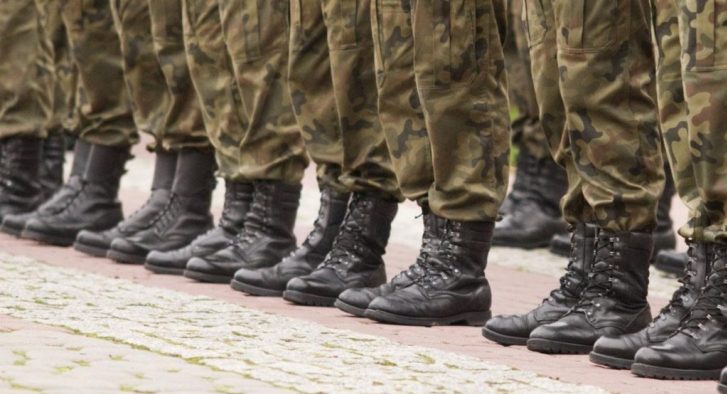
An Optimistic Attitude Might Help Soldiers Protect Themselves From Ever Experiencing Chronic Pain

War is a harrowing experience that often leads to a slew of mental disorders, sleepless nights, scary dreams, and chronic pain. But in a recent study, it was observed that soldiers who remained optimistic while they were posted in Afghanistan or Iraq, didn’t suffer from chronic pain. On the other hand, soldiers who were not as hopeful and showed pessimism tended to complain about chronic pain and high blood pressure more often.

Pessimism and its consequences
A study team reported that soldiers of the U.S Army with a more pessimistic behavior had back pain, pain in the joints, and regular headaches after their return from deployment. It is necessary to stay optimistic whether you are on a battleground, in combat, or a safe zone. Personal injuries can expose the pessimistic side of any person, but pessimism also has far more consequences if the person loses hope and doesn’t look at the brighter side anymore.
The power of having an optimistic approach
Afton Hassett, an associate research scientist at the University of Michigan, reported that they studied the demographic factors such as rank, marital status, education, and whether the person was an officer or an enlisted soldier. By doing that, they learned that the people who stayed optimistic during their deployment were more confident than others and didn’t suffer from any post-war trauma.
We look at positive behavior as an innate ability of someone. Yet, through technological advancement and modern research, this attitude can be modified by undergoing some therapy sessions.
Can you recover from a pessimistic attitude?

We cannot blame others for being pessimistic, but we can identify them in our lines and help them with some pre-deployment programs. It is now possible through cognitive behavior therapy to show people a more optimistic view of the world so that they can finally lose their negative thoughts and start working towards a better, more productive behavior.
Most of the pessimism comes from negative and false beliefs. If we can get into a person’s childhood and how they were brought up, we can motivate them to think differently.
The figures
Among 20,734 soldiers who were surveyed, 37% of them complained about pain in a new part of their body after deployment. A five scaled questionnaire form was provided to every soldier to check their level of optimism in several cases. One situational example given was whether or not they would still see the positive in a combat zone.
Researchers also included the level of combat intensity in their questionnaires and further asked to answer five traumatic events that occurred during their deployment.
Hope for the future
The study’s main focus was to look at the development of chronic pain among soldiers during deployment. But aside from that, they discovered that many experience pain in other parts of their bodies as well. As pessimism can be optimized to optimism, there is hope that our soldiers will come back home with no permanent injuries and sound mental health, leaving chronic pain behind.
More in Relaxation
-
`
Jennifer Aniston’s Timeless Tips for Health and Youthfulness
Iconic Hollywood actress Jennifer Aniston has long been admired for her acting prowess and seemingly ageless beauty and vitality. Now in...
November 22, 2023 -
`
Unleash Your Entrepreneurial Drive: 5 Strategies for Self-Motivation
5. Have an Undying Passion Passion is the driving force behind the world’s most successful entrepreneurs. Self-motivation becomes second nature when...
November 19, 2023 -
`
How to Go Vegan – The Right Way!
The vegan lifestyle has seen a significant surge in popularity lately, and rightly so. Embracing veganism not only fosters personal health...
November 12, 2023 -
`
7 Eye-Opening Reasons to Drink More Water
Water is frequently hailed as the quintessential elixir for life, and rightfully so. Constituting approximately 60% of our total body weight,...
November 1, 2023 -
`
Drake’s Workout Regimen: How the Canadian Rapper Stays Fit
The lights dim, the stage is set, and the crowd’s anticipation is palpable. When the beat drops, there is one Canadian...
October 24, 2023 -
`
Why Six-Figure Family Holidays Are Becoming the New Normal
In the panoramic landscape of the modern travel scene, a particularly glittering trend is emerging, akin to finding a diamond the...
October 21, 2023 -
`
Foods With High Water Content
Water is the elixir of life, and staying adequately hydrated is crucial for maintaining our health and well-being. While sipping on...
October 15, 2023 -
`
The Impact of Wearable Technologies in Health Research
In recent years, wearable technologies have emerged as a powerful tool in health research, revolutionizing how we collect and analyze data...
October 3, 2023 -
`
How Celebrities Stay Fit? Secrets of Chris Pratt, Jennifer Lopez & More
The glitz and glamor of Hollywood may make it seem impossible for celebrities to maintain an enviable physique. But it is...
September 29, 2023















You must be logged in to post a comment Login